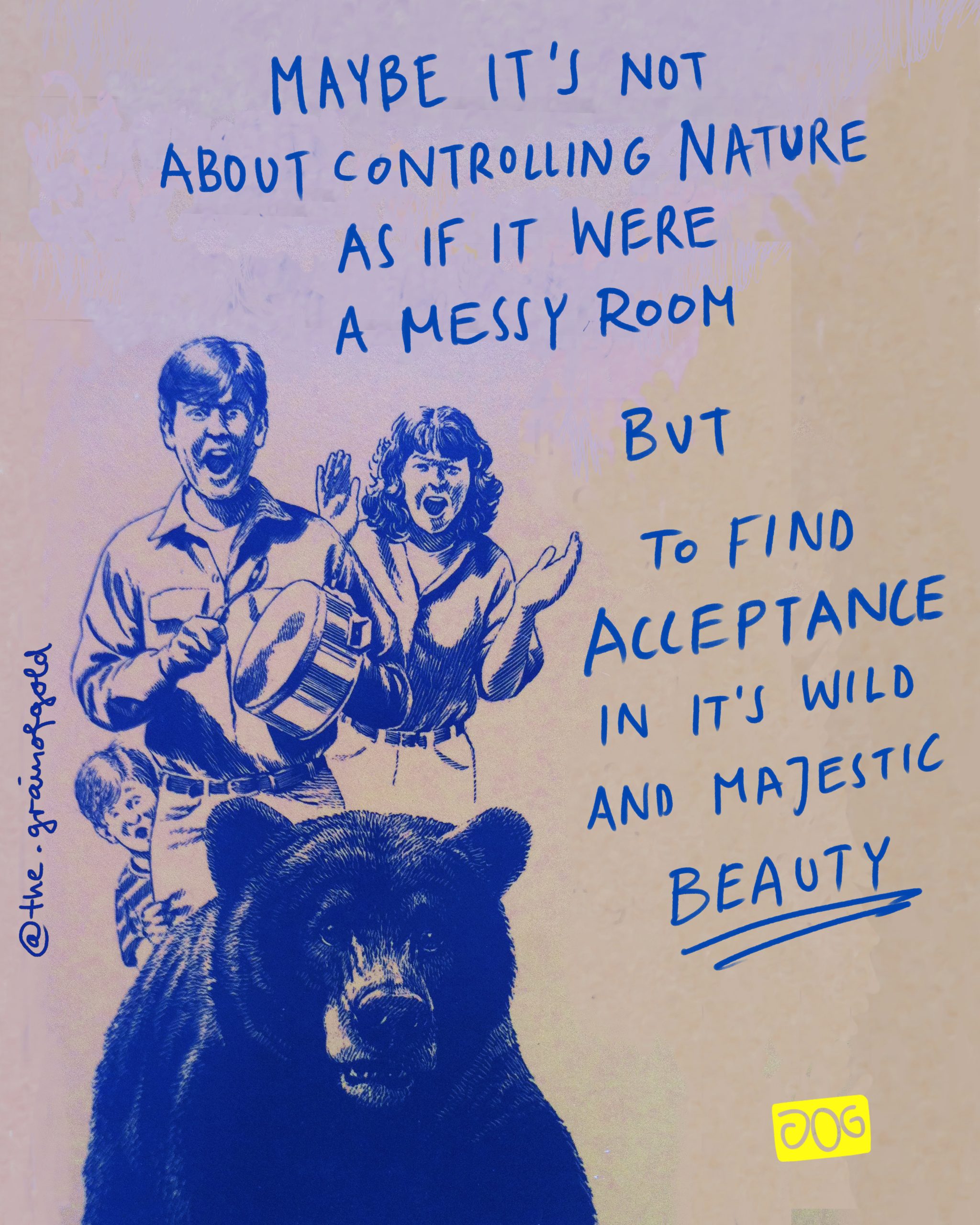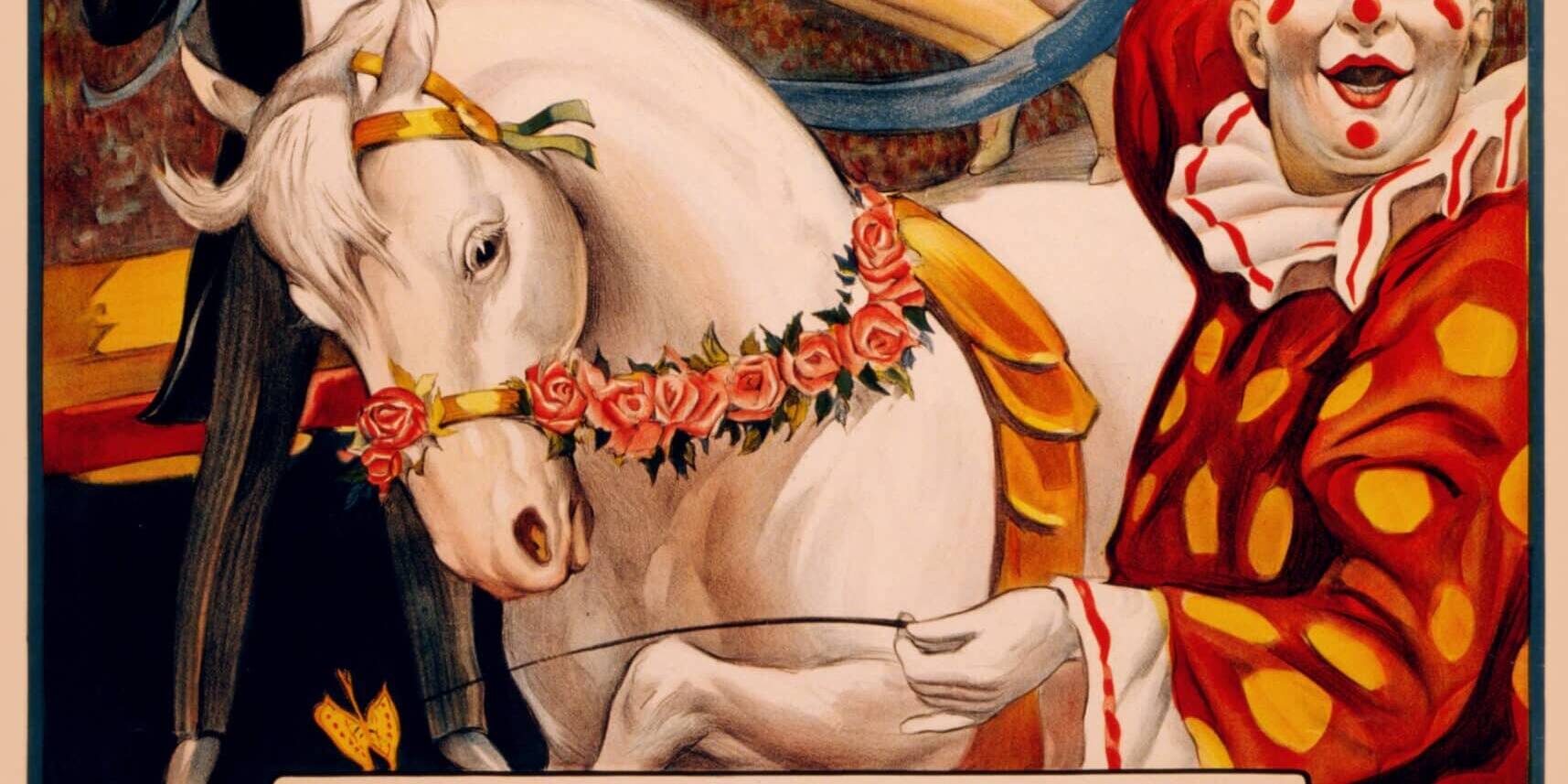Finding acceptance of nature’s wildness
Indigenous cultures often lived in close connection with nature, seeing themselves as part of the world around them rather than separate. But over time, that connection started to change for many societies. So how did we end up feeling so distanced from nature?
In the beginning, it was all about survival – finding enough food, water, and shelter. People worked with the land because they had to. But when communities became more settled and started farming, we began changing the landscape to suit our needs. Agriculture allowed us to produce more than we needed, and this surplus became the foundation for trade and wealth.
Forests were cleared, and animals were pushed back to make way for crops and settlements. This gave people more stability and comfort, but it also marked the start of seeing nature as something to be managed and controlled.
We liked the idea of predictability and safety, and the wildness of nature didn’t always fit into that.
As societies grew, the idea of wealth and ownership became more important. Success started to be tied to controlling more land and resources, which often meant further displacing animals and natural habitats. The belief that taming nature could bring prosperity became widespread, especially as cities expanded and technology advanced. It wasn’t just about survival anymore it was about – progress, growth, wealth and dominance over the natural world.
Religious ideas also played a role, with some suggesting that humans were meant to rule over the earth. Coupled with the rise of technology, this contributed to the mindset that nature could, and maybe should, be controlled. We liked the idea of predictability and safety, and the wildness of nature didn’t always fit into that.
Climate change, deforestation, and the loss of wildlife habitats are all reminders that nature can’t be endlessly pushed aside.
Now, we’re starting to wake up to the long-term effects of this way of thinking. Climate change, deforestation, and the loss of wildlife habitats are all reminders that nature can’t be endlessly pushed aside. And beyond the environmental consequences, many of us feel a deeper disconnection – from the natural world and from the balance it offers. There’s something grounding about being in touch with nature, and as we’ve moved further away from it, we’ve lost some of that balance.
We’re realizing more and more that we are part of this planet, and that the health of the earth is tied to our own well-being. Living in harmony with nature isn’t just about protecting the planet – it’s about realizing that we are part of this intricate, beautiful, sometimes chaotic web of life. When we respect nature, we are respecting ourselves, acknowledging that our well-being is intertwined with the earth.
In reconnecting with nature, we don’t just save the planet; we heal ourselves.
You may also like
One trick pony – part 1 – What hinders authenticity
We may feel compelled to present a simplified and idealized…
One trick pony – part 2 – Hidden parts of ourselves
Authenticity requires us to confront and accept the…
So simple we might forget about it – the hidden power of breathwork
Focusing on our breath, It's a powerful practice that…





